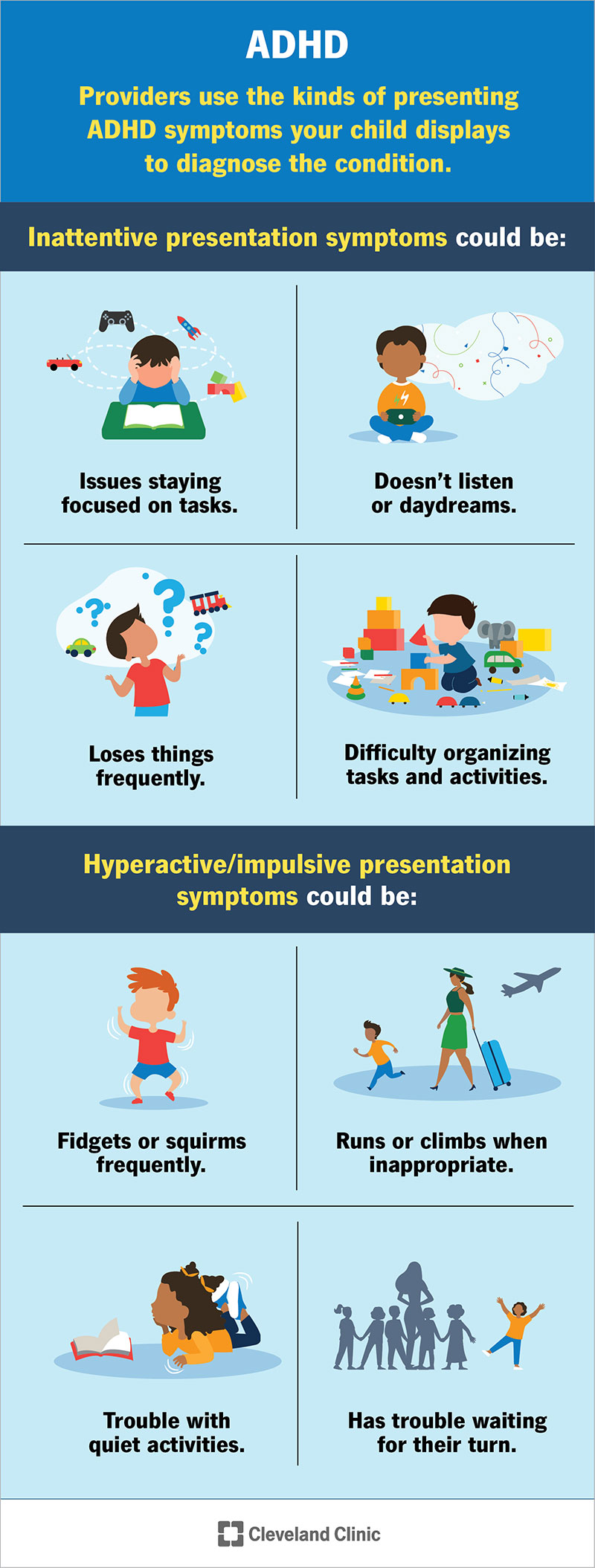The Benefits of Personalized ADHD Therapy Prepare For Better Results
The application of personalized ADHD therapy plans has arised as a pivotal strategy in boosting therapeutic results for people influenced by this condition (ADHD treatment). By identifying the special symptoms of ADHD in each person, these personalized treatments promote better interaction and motivation, inevitably leading to extra reliable coping methods.
Understanding ADHD Irregularity
Although Attention-Deficit/Hyperactivity Condition (ADHD) is typically perceived as a particular condition, its manifestations can differ substantially among individuals. Sex differences additionally play a role, as men are more frequently detected with ADHD and frequently display more overt signs, whereas females might present with less noticeable inattentiveness.
Furthermore, individuals with ADHD may experience a range of emotional and behavior challenges, such as anxiety or opposite defiance, that can make complex diagnosis and treatment. The interaction of these aspects can result in diverse experiences of ADHD, requiring a nuanced understanding of the condition. It is likewise worth keeping in mind that ADHD can provide in different ways across different cultural contexts, influencing how symptoms are identified and attended to. This understanding emphasizes the significance of identifying ADHD as a complex problem, which calls for customized approaches to therapy that take right into account the unique requirements and experiences of each individual.
Secret Components of Customization
Personalized ADHD therapy plans are based in several crucial components that guarantee reliable management of the condition. First, an extensive evaluation is crucial, involving standard ranking ranges, meetings, and behavior observations. This comprehensive assessment enables clinicians to comprehend the individual's one-of-a-kind signs, toughness, and challenges.
Second, the participation of multiple stakeholders, including moms and dads, teachers, and the individual, contributes to an all natural view of the individual's demands. Partnership promotes a supportive setting that can adjust to the person's context and way of living.
Third, treatment plans must be adaptable and versatile, permitting modifications based upon ongoing responses and the person's progressing requirements. This adaptability makes it possible for the combination of different healing approaches, such as behavior interventions, psychoeducation, and medication monitoring.
In addition, social and contextual factors have to be thought about. Identifying the individual's background, worths, and preferences ensures that the treatment is pertinent and respectful.
Finally, regular follow-ups and analyses are necessary to keep track of development and make required adjustments. By concentrating on these vital elements, individualized ADHD therapy strategies can significantly improve the effectiveness of interventions, leading to boosted outcomes for individuals with ADHD.
Boosted Interaction and Inspiration
To properly promote enhanced involvement and motivation in people with ADHD, it is essential to integrate methods that reverberate with their rate of interests and toughness. Customized therapy plans that line up with an individual's passions can lead to increased involvement in healing activities, fostering a sense of possession and enthusiasm for the process.
Utilizing interactive and creative approaches can additionally dramatically boost inspiration. Including gamification aspects or real-world applications of skills can make tasks a lot more enticing and relevant. This not see here now only records attention but also strengthens learning through delightful experiences.
Moreover, establishing possible and look these up significant objectives tailored to the person can strengthen inspiration. When people see their progression towards personally considerable purposes, they are more likely to continue to be engaged. Regular feedback and acknowledgment of achievements can further sustain inspiration, developing a favorable responses loop that motivates ongoing effort.
Lastly, fostering a supportive setting where people really feel understood and valued can considerably influence their involvement degrees. When treatment strategies are developed collaboratively, integrating input from the person, they are extra likely to feel bought their trip, ultimately leading to boosted end results in managing ADHD.
Improved Coping Strategies
Developing improved dealing techniques is essential for individuals with ADHD, as it outfits them with efficient devices to navigate day-to-day difficulties. A tailored therapy strategy allows for the identification of particular coping mechanisms tailored to the person's special requirements and circumstances - ADHD treatment. Methods such as mindfulness, time management abilities, and organizational techniques can be incorporated into everyday routines, cultivating a sense of control and lowering anxiety
Mindfulness practices, including meditation and deep-breathing exercises, assistance people with ADHD concentrate their attention and control their feelings. Time monitoring methods, such as making use of timers or breaking tasks into smaller, convenient steps, can minimize feelings of overwhelm. Additionally, organizational tools like coordinators and checklists can boost efficiency and responsibility.
Lasting Positive Results
Carrying out individualized important site ADHD treatment plans can lead to substantial lasting positive end results for individuals. These tailored techniques, which think about one-of-a-kind signs and symptoms, preferences, and life conditions, help with a lot more effective monitoring of ADHD symptoms over time. By concentrating on the specific requirements of the individual, these strategies enhance adherence to treatment procedures and foster better involvement in healing tasks.

Furthermore, customized treatment strategies can considerably reduce the threat of comorbid conditions, such as stress and anxiety and anxiety, which are frequently linked with ADHD. Early intervention and constant support assistance people construct resilience and coping techniques, advertising overall psychological wellness.
Ultimately, the long-term positive outcomes of individualized ADHD therapy plans not just improve the lifestyle for people but likewise contribute to their general health and success in numerous life domains. This holistic approach highlights the value of individualized care in taking care of ADHD efficiently.
Conclusion
